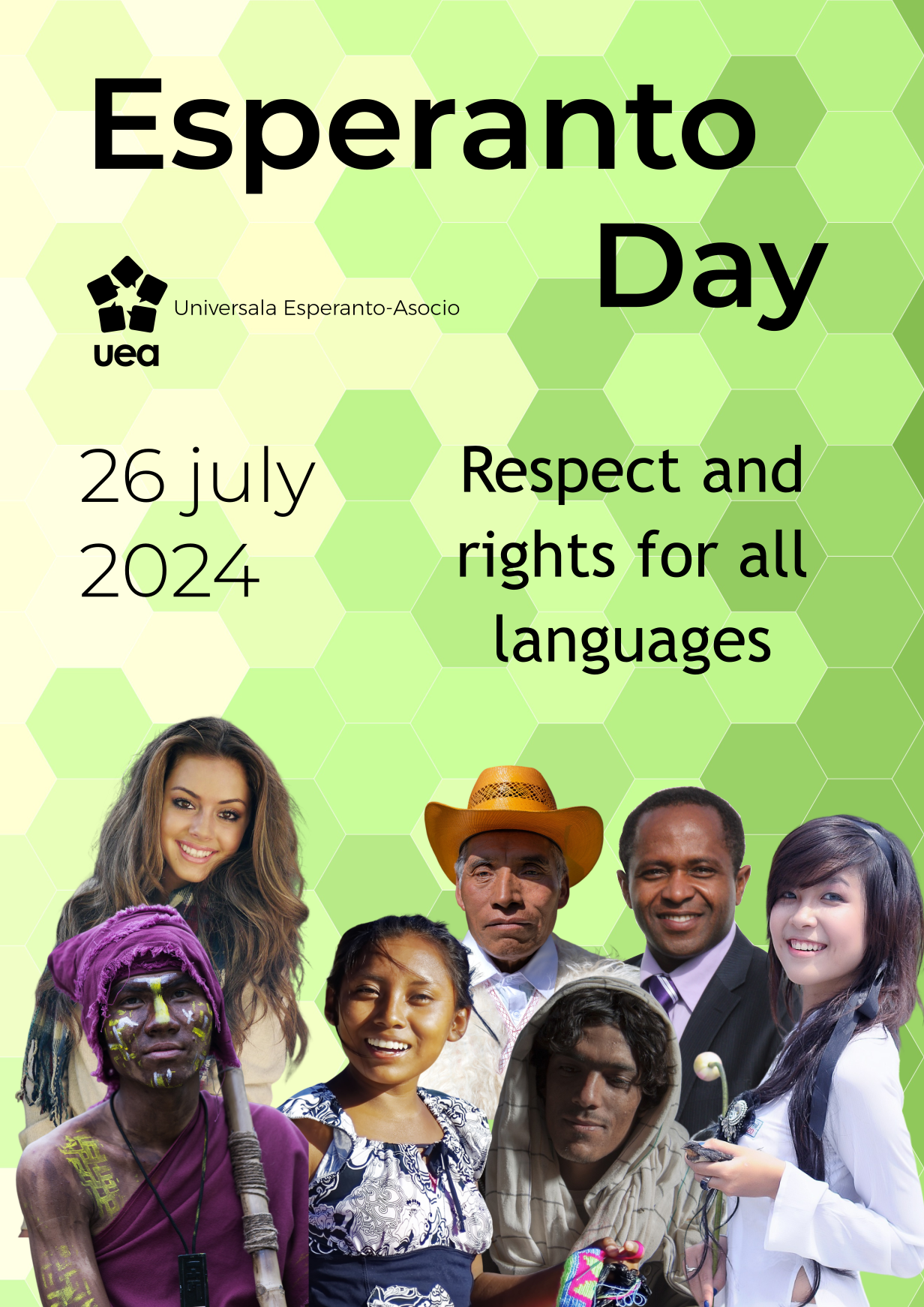
By Universal Esperanto Association
Article 2 of the Universal Declaration of Human Rights clearly states that "everyone is entitled to all the rights and freedoms set forth in this Declaration, without distinction of any kind, such as race, color, sex, language, religion, political or other opinion, national or social origin, property, birth or other status".
This statement in itself clearly condemns the denial of linguistic human rights to peoples, groups, ethnicities or communities that are small, weak or without political influence, and affirms the need to oppose linguistic discrimination.
What is linguistic discrimination? Linguistic discrimination occurs when people who are stronger, more powerful, more educated, or more affluent speak in their mother tongue to people who use other languages and are forced to try to understand or to try to respond if they can. It is unjust treatment of others-mistreatment as old as slavery, or the treatment of women as inferior, or the summary execution of the weak, or the economic exploitation of weaker countries, or racism, or similar unjust practices.
But there is one difference from other forms of discrimination: linguistic discrimination often goes unrecognized by those who practice it, or even by those who are discriminated against.
Even the United Nations, which is the only point of dialogue available to our planet, doesn't fully apply what the Declaration of Human Rights implies: everyone's right to understand and be understood. It has several major languages as its official languages, but in practice it mostly uses only a few major languages to speak to the world. As a result, it tends to listen only to the small part of the world that is able to respond in those major languages. Is this the most effective way to mobilize the world's citizens to find solutions to globally important problems, such as the Sustainable Development Goals, the climate dialogue, or the search for peace?
Some African leaders have clearly recognized the relationship between the use of mother tongues and development, including Julius Nyerere and especially Nelson Mandela, who once said: "If you speak to a man in a language he understands, you speak to his head, but if you speak to him in his own language, you speak to his heart."
We need to mobilize hearts around the goals of the United Nations.
The solution proposed by speakers of the neutral world language Esperanto may seem too futuristic to be applied on a large scale, but it deserves our attention because it is a language created so that everyone in the world would have the right to speak their own language at home without the pressure of the major languages. Esperanto was created so that all languages could live, and so that dialogue between groups with different languages could take place without the pressure of one language against another, in a spirit of equality, without discrimination.
We invite you on this year's Esperanto Day, July 26, not to learn Esperanto just to learn another language, even if it is relatively easy, but to understand the nature of linguistic discrimination, who practices it and how we can overcome it through equal communication.
(Source: Prensa Latina)

